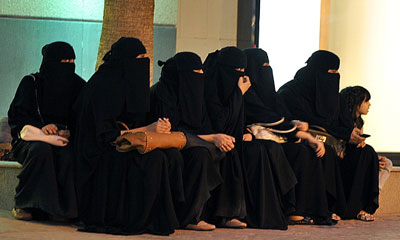 New Delhi:
New Delhi: Deep-rooted gender inequalities continue to undermine India's potential to translate economic growth into inclusive development, according to a government report which highlighted the inequality found in the education system.
It says gender is the most pervasive form of inequality that operates in India across all classes, castes and communities, posing a big challenge despite the progressive education policy.
The Report on the Implementation of Beijing Declaration and Platform for Action says that issues of gender have been one of the most challenging in the progress made towards the goals of universalisation, inclusion, equity and quality in education.
The report will be submitted by Union Women and Child Development Minister Maneka Gandhi at the Asian and Pacific Conference on Gender Equality and Women's Empowerment: Beijing+20 Review which is underway in Bangkok since yesterday till 20 November.
"Gender being the most pervasive form of inequality operates across al classes, castes and communities in India and is a big challenge despite having a progressive education policy with regard to gender," it says.
"The education system still reflects the inequality found in the society outside the classroom. Continuous and sustained efforts are still required to bring the status of the girls at par with boys," the report says.
It mentioned the setbacks or reversals in progress towards gender equality and empowerment of women that have been experienced since the adoption of the Beijing Declaration.
"...the gender-based inequalities for instance, in education, income and employment limit the ability to protect their health. This lack of power of women in most cultural settings also impacts nutritional intake and health status of women and girls," the report states.
Thus, according to government, along with the policy initiatives and enactment of legislations, a lot needs to be done to realise the policy measures on ground so that effective implementation takes place.
Certain critical areas of concern like tackling burden of poverty, unequal access to primary health care, under nutrition, high rates of illiteracy, lack of access to and control over assets and resources, inequalities in sharing of power and decision making, lack of access to information, violence against women, adolescents and girl child and persisting discrimination against the girl child, require immediate attention in order to ensure equality and practical realisation of rights for women, states the report.
The report further states that convergence of efforts of various ministries, departments and civil societies has been an ongoing challenge in India, being a multi-lingual and multi-cultural country.
Changing mindset to ensure equity and empowerment of women is another challenge, government stated in the report.
A multi-pronged strategy to tackle the issues has been adopted to address traditional and cultural practices, socio-cultural barriers, socio-economic conditions of women, lack of adequate legal awareness and issues relating to the inadequate implementation of various Policy measures and mechanisms.
The government said that gender budget has shown a continuous increase in the National Budget. During 2014-2015 the total budget for the Ministry of Women and Child Development was Rs 203,500 million.
 New Delhi: Deep-rooted gender inequalities continue to undermine India's potential to translate economic growth into inclusive development, according to a government report which highlighted the inequality found in the education system.
New Delhi: Deep-rooted gender inequalities continue to undermine India's potential to translate economic growth into inclusive development, according to a government report which highlighted the inequality found in the education system.